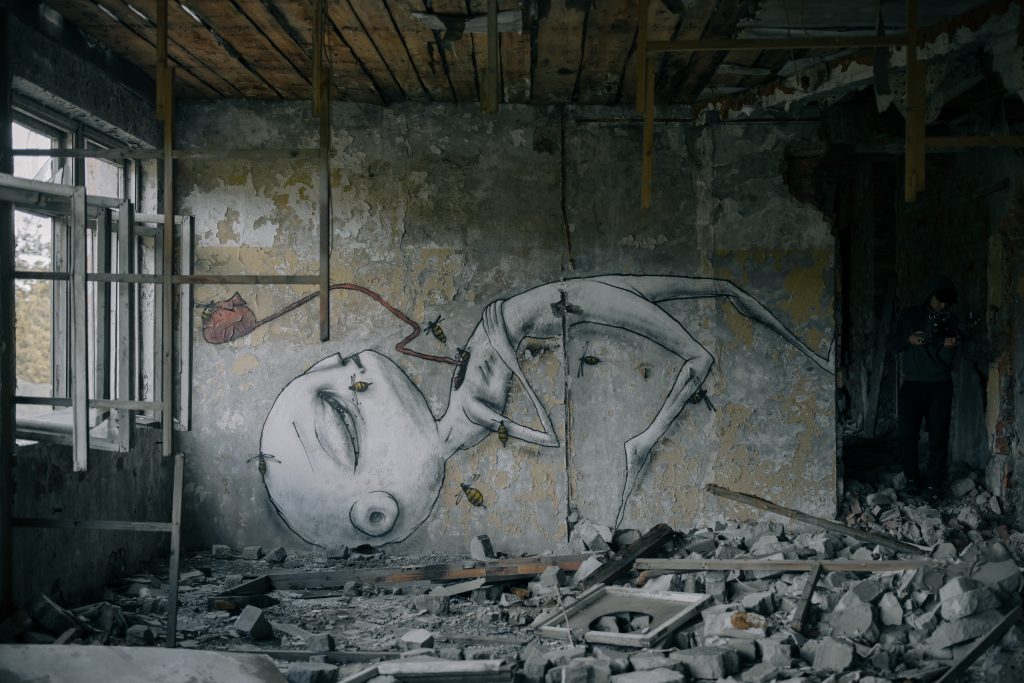
CFP: Representations of Violence in Literature and Other Media
Specialist course for PhD students sponsored by Ghent University’s Doctoral School of Arts, Humanities, and Law
Ghent, Belgium, 4-5 May 2023
The forms, representations, and long-term effects of violence are complex and far-reaching. Scholars have defined violence as an “intentional use of physical force” (Wolfgang 1967: 316), “an extreme form of aggression” (Bushman 2017: 185), and “a power relationship aimed at subjecting […] another person” (Muchembled 2012: 7). Others have focused on the concept of structural or systemic violence, highlighting “socio-economic disparities,” “structurally conditioned poverty,” and “the deprivation of human rights” as the core mechanisms used by repressive regimes (Galtung 1969). More recently, scholars have attempted to redefine the concept of violence by paying attention to the “calamitous repercussions” and “relative invisibility” of “slow violence” (Nixon 2011: 2), emphasizing its insidious nature and disastrous impact on the economy of poorer nations (Kressner, Mutis, and Pettinaroli 2019; El 2020; O’Lear 2021). By bringing together an array of disciplinary approaches, they have opened the way for a better understanding of violence, whether it is direct and immediate or indirect and gradual.
This doctoral course aims to reflect critically on the concept of violence and provide insight into its literary and media representations. Participants are invited to explore different forms of violence and the ways they are portrayed in literature and other media, such as newspapers, magazines, television, radio, film, social media, and other digital media. Experts will shed light on the historical, socio-cultural, and political aspects of violence and outline methods for understanding representations of violence in local and global contexts. The course is interdisciplinary in nature, drawing on literary studies, critical theory, political science, environmental studies, gender studies, memory studies, and other fields and disciplines. Participants will be given the opportunity to present their work and receive feedback from local and international experts. Possible topics for paper proposals include, but are not limited to:
- War and armed conflict in the 20th and 21st centuries
- Forced displacement, migration, and exile
- The climate and ecological crisis and its effects
- Gender violence (sexual harassment and intimidation, sexual abuse, domestic violence, femicide, forced prostitution, female genital mutilation, violence against the LGBTQ community, etc.)
- Institutional and systemic violence (criminalization of abortion, police brutality, censure, racial violence, ethnic cleansing, antisemitism, political discrimination, etc.)
- Violence, memory, and trauma (physical and/or psychological abuse, collective trauma, PTSD and complex PTSD, etc.)
This two-day course will consist of four keynote lectures, four specialist feedback sessions (in which the participants receive expert feedback on their work-in-progress), and four reading sessions (in which students and experts jointly discuss a theoretical text).
The confirmed international experts are:
- Dr Jordana Blejmar (University of Liverpool, UK)
- Dr Pavan Malreddy (Goethe University Frankfurt, Germany)
- Dr Esther Marijnen (Wageningen University, the Netherlands)
- Professor Jenny Wüstenberg (Nottingham Trent University, UK)
Participation in the course is free of charge, as are lunch and coffee/tea. Submissions are open to all PhD students, but priority will be given to those affiliated with Ghent University, the University of Antwerp, Vrije Universiteit Brussel, or the University of Liège. If you wish to be considered for one of the 16 places available, please send a 300-word abstract for a 15-minute paper (including title, name, and institutional affiliation), a description of your doctoral research project (one paragraph), and a 150-word bio as a single Word document to cedric.van.dijck@vub.be by 1 February 2023. Notification of acceptance: 15 February 2023. Deadline for submission of paper drafts: 15 April 2023.
If you have any questions, please write to liselotte.vandergucht@ugent.be.
Organizers:
- 20th-Century Crossroads, Ghent University
- Centre for Literary and Intermedial Crossings, Vrije Universiteit Brussel
- Conflict Research Group, Ghent University
- Cultural Memory Studies Initiative, Ghent University
- Institute of Jewish Studies, University of Antwerp
Organizing committee:
- Jeroen Adam (Department of Conflict and Development Studies, Ghent University)
- Gert Buelens (Department of Literary Studies, Ghent University)
- Stef Craps (Department of Literary Studies, Ghent University)
- Vivian Liska (Department of Literature, University of Antwerp)
- Delphine Munos (Department of Literary Studies, Ghent University / Department of Modern Languages, University of Liège)
- Arvi Sepp (Department of Linguistics and Literary Studies, Vrije Universiteit Brussel)
- Dr Christina Bezari (Department of Literary Studies, Ghent University)
- Dr Cedric Van Dijck (Department of Linguistics and Literary Studies, Vrije Universiteit Brussel)
- Mary Ann Manahan (Department of Conflict and Development Studies, Ghent University)
- Liselotte Van der Gucht (Department of Literary Studies, Ghent University)
- Eva Van Hoey (Department of Literary Studies, Ghent University)
References:
- Bushman, Brad J. “Aggressive Cues: Weapons and Violent Media”. In Brad J. Bushman, ed. Aggression and Violence: A Social Psychological Perspective. New York: Routledge, 2017, 184–198.
- El, Erden. Slow Violence in Contemporary American Environmental Literature. Newcastle: Cambridge Scholars Publishing, 2020.
- Galtung, Johan. “Violence, Peace, and Peace Research”. Journal of Peace Research, Vol. 6, No. 3, 1969: 167–191.
- Kressner, Ilka & Ana María Mutis, Elizabeth Pettinaroli, eds. Ecofictions, Ecorealities, and Slow Violence in Latin America and the Latinx World. New York: Routledge, 2019.
- Muchembled, Robert. A History of Violence: From the End of the Middle Ages to the Present. Cambridge: Polity Press, 2012.
- Nixon, Rob. Slow Violence and the Environmentalism of the Poor. Cambridge/Massachusetts: Harvard University Press, 2011.
- O’Lear, Shannon, ed. Geographies of Slow Violence: Making Social and Environmental Injustice Visible. Cheltenham: Edward Elgar Publishing, 2021.
- Wolfgang, Marvin E., ed. Studies in Homicide. New York: Harper & Row, 1967.
